
|
|
Vanishing Manufacturing Jobs Jobs Disappearing in Minority and Immigrant CommunitiesAs recently as 1970, manufacturing accounted for a quarter of all U.S. jobs but by 2006, its share had dropped to just 10 percent. Throughout this past decade, most of the top 100 metros shed manufacturing jobs in both good times and bad. Older industrial centers in the Midwest had a much harder time making up for those losses through job creation in other sectors, although a few managed to do so until the recession hit. Some Southern and Western metros more than offset their manufacturing job losses, ending up the decade with more jobs in 2009 than in 2000, despite the job losses of the 2007-2009 recession. We focus here on the 37 large metro areas with substantial minority and immigrant populations because an earlier MetroTrends analysis of diversity and employment showed that immigrants were more likely to live in areas of job growth while African Americans were likely to be in more economically vulnerable communities. Since the manufacturing sector in many of these metros historically provided relatively high-paying job opportunities for both minorities and newcomers, we wanted to see what role that sector played over the past decade in the differing fortunes of both types of metros. Among these 37 metros, the share of jobs concentrated in the manufacturing sector ranged from 2.1% (in the Washington, DC region) to 18.4% (in San Jose, TX). In eleven of these metros, the share of jobs in the manufacturing sector exceeded the national average in 2006. Six were in the Midwest, two were in the South, and three were in the West. Detroit stands out in this group as the only metro area that not only lost jobs in manufacturing, but in all the major industrial sectors. Overall, nonfarm jobs in Detroit were down 21 percent at the end of the decade. Indianapolis was the only Midwestern metro in the group that had a net increase in jobs. It was able to offset the decline in manufacturing jobs with a substantial increase in service sector jobs. In addition to Indianapolis, four other high-manufacturing metros gained jobs between 2000 and 2009: Augusta, Charlotte, Nashville, and Stockton. The only metros among our 37 where manufacturing jobs increased in the past ten years are in the South and West. These gains took place during the economic expansion of 2004-7. Houston was the only metro in which the manufacturing job gains were substantial and in no case did the new jobs offset manufacturing job losses in either recessionary period (2000-3 or 2007-9). Historically, the manufacturing sector shrank in recession but rebounded quickly during expansions. However, in the past few decades recession has accelerated the loss of manufacturing jobs in older industrial communities. That trend seems to have continued in this recession; the metros poised to recover from these losses tend to be in Southern communities, some of which have high African American populations, and in Western communities, which are home to many recent immigrants. In most cases, it is not manufacturing that holds promise for new jobs, but the retail and service sectors which might not generate as many high-paying jobs. |
Expert Feedback
Send us your comments to help further the discussion. Share
Commentaries
|




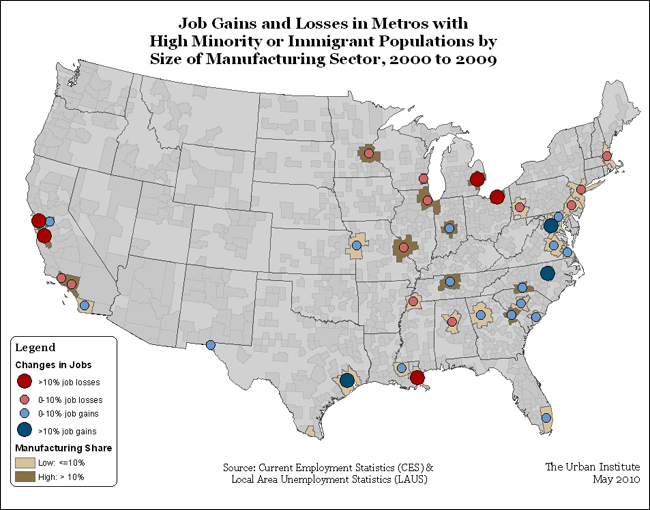

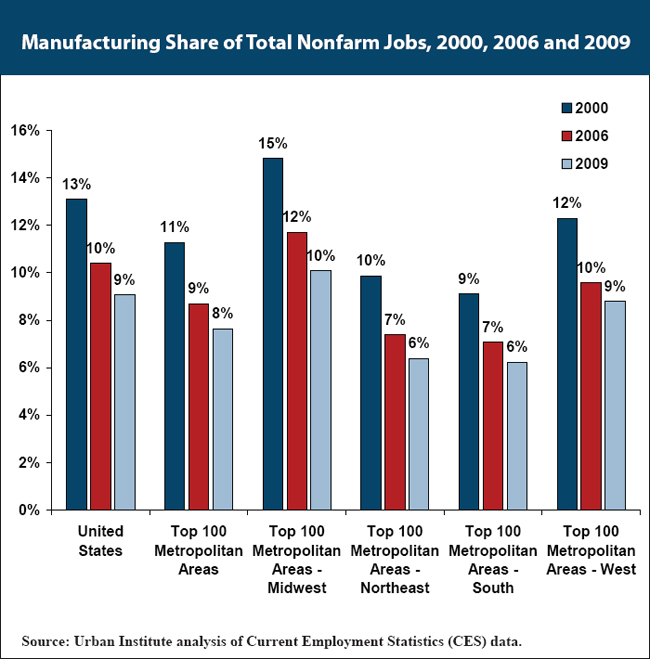
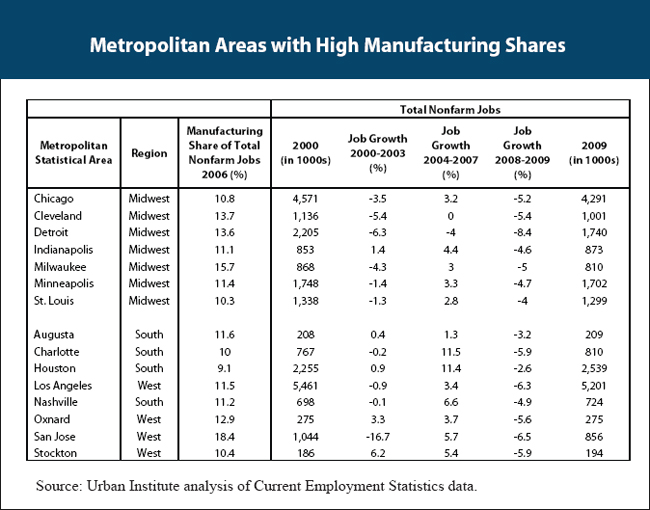
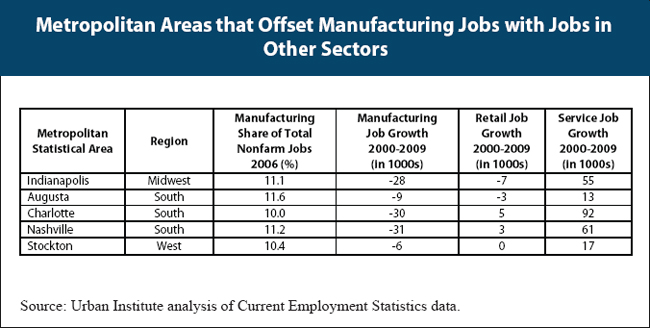
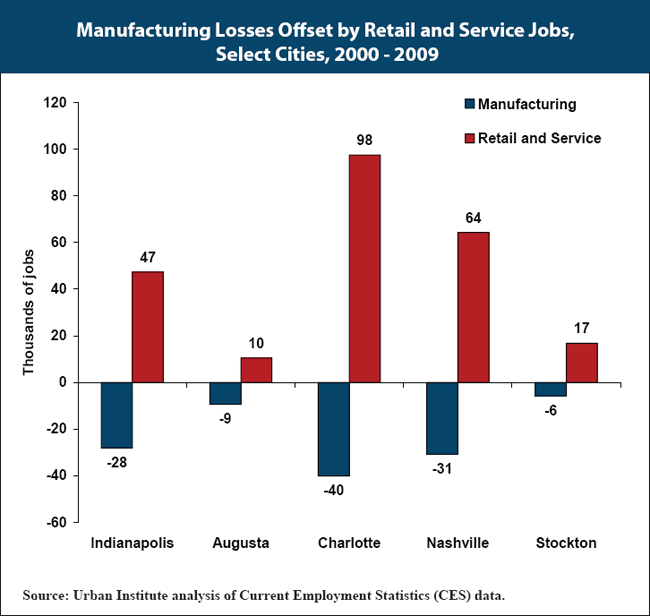
 Margaret Simms
Margaret Simms